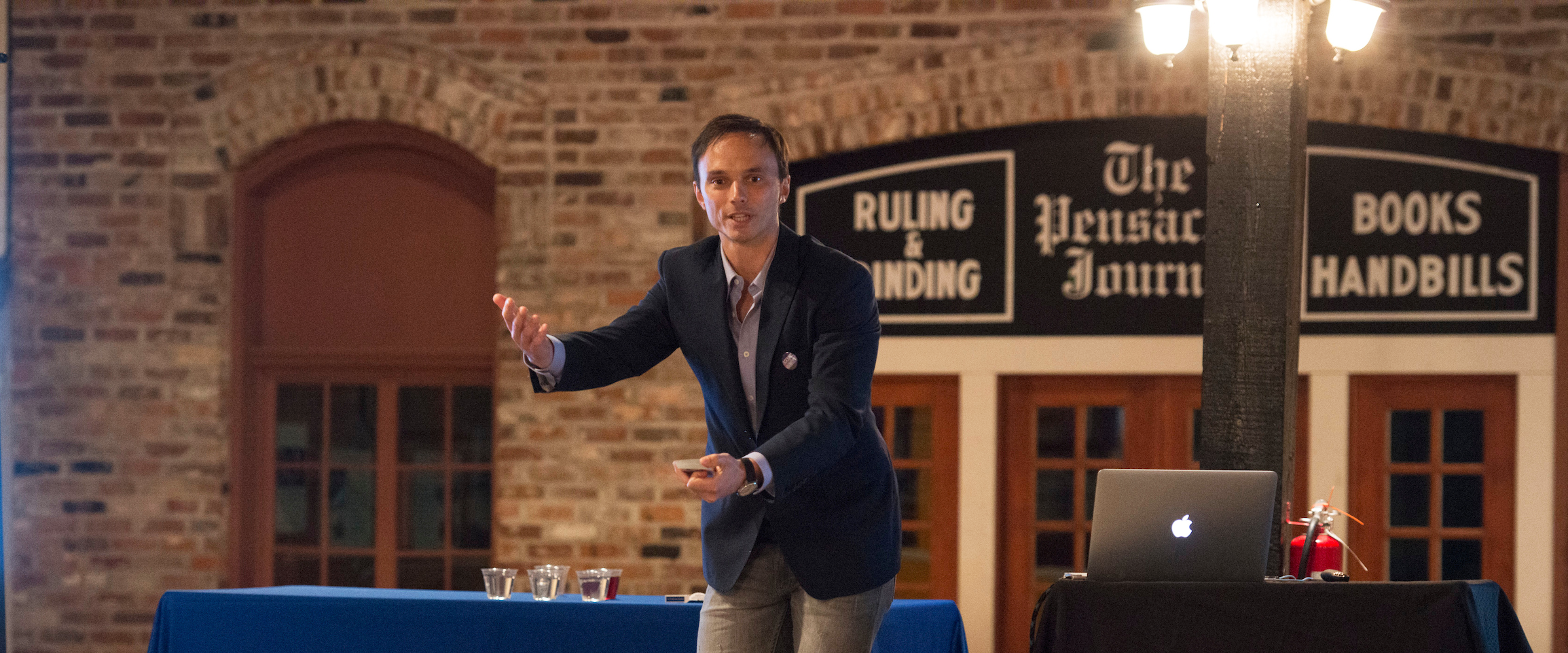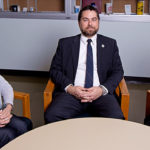Philosopher: Audience Skepticism Key to Theatrical Magic’s Appeal
Pensacola – As part of the Experience UWF Downtown lecture series, Dr. Jason Leddington brought a little theatrical magic to Pensacola’s historic Museum of Commerce Thursday evening.

In a talk called “Magic: Enjoying the Impossible,” Leddington, a prize-winning essayist and associate professor of philosophy at Bucknell University, explored the nature of the art form.
Using a philosopher’s approach, Leddington applied a framework for explaining the fascination with theatrical magic.
Leddington’s work on the philosophy of magic is supported by a grant from the National Endowment for the Humanities, and his essay, “The Experience of Magic” won the 2015 John Fisher Memorial Prize from the American Society for Aesthetics. He also studies perception and the nature of understanding. Leddington performs magic semi-professionally and counts come of the world’s best sleight-of hand artists among his friends and mentors.
“You’ve probably never heard a talk on magic by an art historian, art critic or philosopher,” Leddington told the audience. “That’s because magic in general has not been taken very seriously as an art form. But, magic is a rich and interesting art form that deserves and rewards critical reflection.”
Leddington said people are fascinated by magic because it “goes straight to the brain.”
Magic is a form of theater that appears to present events that the audience believes are impossible, so people experience it as real and unreal at the same time, Leddington said. Experiencing something that is real yet unreal at the same time creates cognitive dissonance, which is why some of us enjoy magic, and some of us do not.
People who are uncomfortable with the unknown or the inexplicable often say they don’t like magic. Those who enjoy magic are comfortable having two opposing thoughts in mind at the same time. The opposing thoughts go something like this: It can’t happen. But it is happening. I know there must be a trick, but I can’t figure out how the trick works.
The magician doesn’t want you to believe in magic, Leddington said. In fact, active disbelief is actually necessary for the experience of theatrical magic. Magic is not about suspension of disbelief.
“The whole point of a magic performance is that something impossible is apparently happening,” Leddington said. “Magic is about creating an illusion, the illusion of impossibility.”
During his talk, Leddington performed one elaborate card trick to illustrate his point about making people feel the ultimate curiosity. He passed a deck of cards around the audience so that several people could shuffle them. He asked a volunteer to choose several cards from the shuffled deck. He then correctly identified each of the cards the volunteer drew from the deck.
“Magic enthralls people because it has the capacity to inspire infinite wonder, which is an unusual occurrence in our everyday lives,” Leddington said in conclusion.
Presented by the University of West Florida College of Arts, Social Sciences and Humanities, the Experience UWF Downtown Lecture Series, now in its fifth season, showcases scholars of outstanding prominence who promote the value and role of the liberal arts in building and sustaining contemporary culture.



